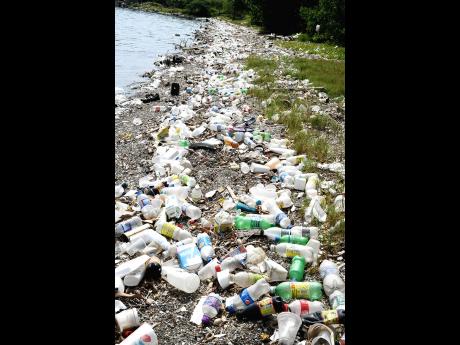We are eating our own garbage, says JET's Stanley
Despite over 1,700 volunteers participating in the International Coastal Clean-up Day, removing an estimated 15,488 pounds of garbage from the Kingston Harbour, solid waste management in Jamaica is in a state of crisis according to Suzanne Stanley, chief executive officer of the Jamaica Environment Trust (JET).
"We are, essentially, eating our own garbage and a lot of the chemicals contained in it. Studies show that a lot of the marine animals we eat - fish and shellfish - mistake the plastics for food and absorb the chemicals from the plastics into their tissue. The plastic in the ocean is being consumed by the fish, becoming a part of the fish, and then we eat the fish", she said.
Stanley was responding to questions posed by The Gleaner last week regarding the state of sections of the Kingston Harbour coastline in the wake of recent heavy rains, where many of the areas targeted in the last clean-up efforts in September were observed to be overrun by debris.
Plastic ban not enough
Stanley affirmed JET's support for the Government's ban on single-use plastic bags, straws, and polystyrene food and beverage containers as a move in the right direction; however, she noted that more needed to be done, adding that it remained unclear how the Government intended to address the problem of plastic bottles, which is a significant source of non-biodegradable waste, locally.
"A ban is just one part of a complex puzzle. There are regulations and legislation that need improvement, and there is inadequate enforcement of the existing anti-litter, anti-dumping laws. Our garbage collection is not as frequent as it should be in many communities, and there are not enough bins in public spaces," she explained.
According to Stanley, it is the totality of these issues that creates the unsightly build-up along the island's shorelines. She further underscored the importance of public education as a tool to combat the scourge of improper waste disposal.

